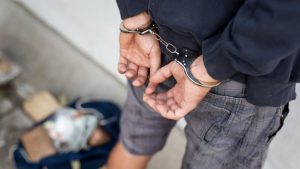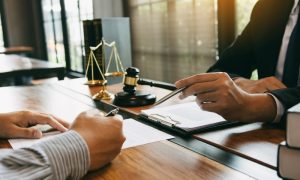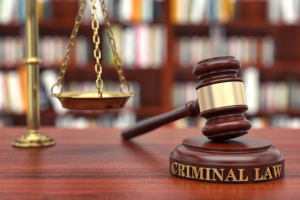
When faced with second degree forgery charges, understanding the legal landscape can make all the difference. We help our clients protect their rights and build a strong defense against accusations of forging documents, signatures, or financial instruments. Our experience with these cases ensures that every detail is carefully examined to give you the best possible representation.
Second degree forgery charges may seem overwhelming, but with the right second degree forgery lawyers, they can be navigated effectively. We understand how much is at stake and are prepared to advocate for your interests through each stage of the process.
Understanding Second Degree Forgery
Second degree forgery is a specific criminal offense involving the creation, alteration, or use of forged documents with the intention to defraud. Our focus is on the key legal standards, notable document types, and practical examples relevant to individuals and professionals.
Definition and Legal Elements
Second degree forgery involves intentionally creating, altering, or using a false document with the specific intent to defraud another party. The act is governed by the penal code, and the definition can vary by state, but core elements are consistent.
Key elements include:
- Knowing falsification or creation of a document
- Document appears to have legal significance or value
- Specific intent to defraud or harm another
Typical documents include contracts, checks, wills, and deeds. Second degree forgery is usually classified as a felony, though it may be charged as a misdemeanor in certain cases, depending on the document involved and the value at stake.
Types of Second Degree Forgery
The criminal law delineates second degree forgery based on the nature and importance of the falsified documents. Many penal codes list different levels of forgery according to the potential harm or societal risk.
Common types of forged documents:
| Document Type | Example |
| Checks | Fake or altered bank checks |
| Contracts | Modified business agreements |
| Wills | Falsified testamentary documents |
| Deeds | Altered property deeds |
These types of forgery generally do not involve governmental records or high-value instruments, which may fall under first degree forgery. Our experience shows that cases often revolve around business and financial documents.
Common Examples
We often see second degree forgery allegations involving falsified checks with changed payee names. Another frequent scenario is the unauthorized alteration of contract terms to benefit one party during a transaction.
Cases also arise from creating fake deeds to transfer property ownership or submitting false wills to courts to claim an inheritance. Each example hinges on the intent to defraud and the presented document’s legal significance. Our practice regularly encounters these examples in both misdemeanor and felony contexts.
Legal Representation in Second Degree Forgery Cases
Second degree forgery cases present complex challenges that require careful legal strategy. Our understanding of relevant statutes, potential penalties, and common defenses allows us to navigate the legal process effectively and protect our clients’ rights.
Role of a Second Degree Forgery Lawyer
As criminal defense attorneys, our job is to guide clients through each stage of the process, from investigation to trial. We analyze evidence, advise on plea negotiations, and represent clients in all interactions with law enforcement and the criminal court. Our responsibilities include explaining the legal significance of every charge, especially the element of intent to defraud.
We assess whether the prosecution has valid proof of criminal forgery and criminal fraud. For second degree forgery, this often involves allegations that a person altered or created a written instrument or document with the intent to deceive. This is typically prosecuted as a white collar crime.
Our training and experience also help us identify weaknesses in the prosecution’s case, such as questionable evidence or a lack of clear intent. According to the American Bar Association, a skilled criminal defense lawyer is crucial for an effective defense against felony or misdemeanor forgery charges.
Possible Defenses and Strategies
There are several recognized legal defenses in forgery cases. One major strategy is to challenge the prosecution’s claim of intent to defraud; if there was no intent, the charges may not hold. We also examine whether our client had consent to use the document or if there was a lack of capacity, such as being under duress or coercion during the alleged act.
Some viable defenses include:
- Lack of intent
- Consent from the affected party
- Mistake of fact
- Forged document was never used or did not cause harm
- Lack of capacity or coercion
We critically examine the prosecution’s evidence, often calling on forensic document experts or digital analysts for support. Each strategy is tailored to the details of the case to provide the most effective criminal defense.
Penalties and Sentencing
Penalties for felony forgery in the second degree can be severe, depending on the nature and value of what was forged. Common consequences include prison time, probation, fines, restitution to victims, and a permanent criminal record. For misdemeanors, sentencing may involve shorter jail terms or community service.
Sentencing guidelines vary by state, but judges often consider aggravating factors such as prior convictions, the amount of harm caused, and whether the act was part of a broader fraud scheme. In some cases, courts may show leniency if we establish mitigating circumstances, like a lack of prior criminal history or acting under coercion.
Our goal, as experienced criminal defense attorneys, is to minimize these penalties whenever possible through negotiation or by presenting strong defenses at trial.
Selecting an Experienced Attorney
Choosing an experienced criminal defense lawyer is essential in forgery cases. We recommend selecting an attorney who has handled similar criminal fraud or forgery cases and has in-depth knowledge of state and federal law.
Look for credentials such as membership in respected organizations like the American Bar Association, as well as a proven track record in defending against charges of white collar crime.
Ask critical questions:
- Do they understand all potential defenses to forgery?
- Have they successfully negotiated plea deals or achieved favorable verdicts in trial?
- Are they familiar with forensic evidence?
An attorney’s experience, resources, and relationships with local courts can be decisive in the outcome of a second degree forgery charge. Trusted representation offers a clear understanding of risks, options, and the best path forward.





